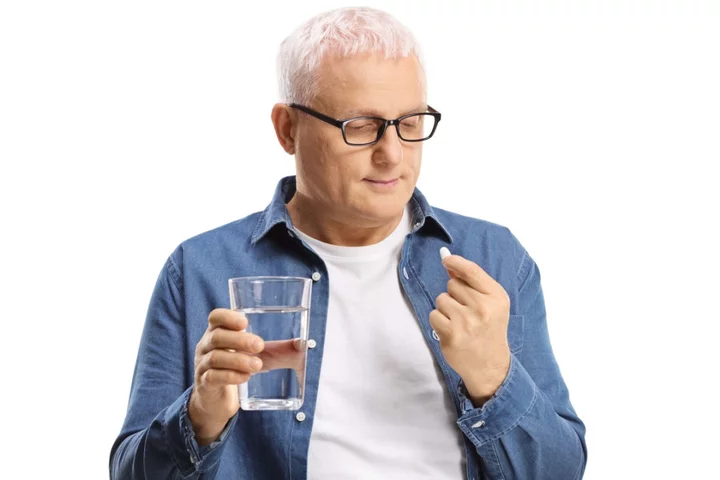
Daily aspirin dose could help prevent diabetes in older people – researchers
Taking 100mg of aspirin every day could lower the risk of people aged 65 and over developing type 2 diabetes, researchers have suggested. Scientists – led by Professor Sophia Zoungas of Monash University’s School of Public Health and Preventive Medicine in Melbourne – said their findings warrant further exploration but do not change the current clinical guidelines on older people taking aspirin. Some 16,209 people were included in the study; 8,086 were given aspirin while 8,123 were given a placebo. All were aged 65 or over and did not suffer from cardiovascular disease, physical disabilities or dementia. Although these new findings are of interest, they do not change the clinical advice about aspirin use in older people at this time Prof Zoungas Over a median follow-up of 4.7 years, researchers found the group given aspirin had a 15% reduction in type 2 diabetes and a slower rate of increase in fasting plasma glucose (FPG) levels. The authors said: “Given the increasing prevalence of type 2 diabetes among older adults, the potential for anti-inflammatory agents like aspirin to prevent type 2 diabetes or improve glucose levels needs further study.” The findings will be presented to delegates at the annual meeting of the European Association for the Study of Diabetes (EASD) in Hamburg in October. However, the study was a follow-up of the ASPREE trial, which was published in 2018. It found taking aspirin led to a 38% increased risk of major haemorrhage in older adults without any reduction in incidence of cardiovascular disease. Prof Zoungas said her team’s research does “not change clinical advice” around older people taking aspirin. According to the NHS, a low-dose of aspirin – 75mg – each day can help to prevent heart attacks and strokes in people who are at high risk of them, but should only be taken if your doctor recommends it. Prof Zoungas added: “The earlier published trial findings from ASPREE in 2018 showed aspirin did not prolong healthy independent living, but was associated with a significantly increased risk of bleeding, primarily in the gastrointestinal tract. “Major prescribing guidelines now recommend older adults take daily aspirin only when there is a medical reason to do so, such as after a heart attack. “Although these new findings are of interest, they do not change the clinical advice about aspirin use in older people at this time.” In June, a paper published in The Lancet Diabetes and Endocrinology journal claimed 1.3 billion people could be living with diabetes by 2050 – more than double the 529 million cases in 2021. Academics described the condition as one of the “biggest public health threats of our time”. However, Dr Faye Riley, research communications manager at Diabetes UK, said the link between aspirin and diabetes prevention “remains unclear”. She added: “With more than 2.4 million people in the UK at high risk of type 2 diabetes, there’s an urgent need to find new and better ways to help people avoid the condition. “While this research found that taking a daily low-dose aspirin was linked to a small decrease in risk of type 2 diabetes in older people, whether aspirin has a role to play in type 2 prevention remains unclear, and this approach may have unwanted side effects. “We know the use of daily aspirin increases risk of potentially serious bleeding in people with diabetes and others, so we advise only taking daily low-dose aspirin if your doctor recommends it and they will discuss exactly what dose is right for you. “We do know the best ways to reduce your risk of type 2 are getting support to lose weight if you need to, eating a healthy, balanced diet and doing more physical activity. “ Read More Charity boss speaks out over ‘traumatic’ encounter with royal aide Ukraine war’s heaviest fight rages in east - follow live Secondhand September: The best places to buy pre-loved fashion online What are gynaecological cancers and how can you prevent them? Alzheimer’s: How and when to talk to someone about their memory loss
2023-09-01 15:49
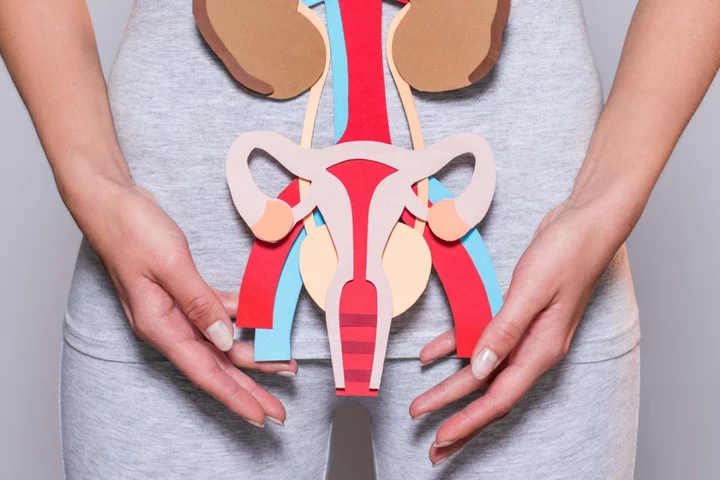
What are gynaecological cancers and how can you prevent them?
September is Gynaecological Cancer Awareness Month, which sees charities joining together to put the spotlight on the range of cancers that start in the female reproductive system. There are five main types of gynaecological cancer – cervical, ovarian, vaginal, vulvar and uterine (or womb) – plus fallopian tube cancer, although this is very rare. Around 22,000 women are diagnosed with a gynaecological cancer each year in the UK, of which 21 die every day, according to charity The Eve Appeal. However, some of these cases are preventable, and with the right treatment, many gynaecological cancers have high survival rates. Here, experts answer some key questions about the prevention and treatment of gynaecological cancers. What are the symptoms of gynaecological cancers? “The symptoms of gynaecological cancers can vary,” says gynaecologist Oudai Ali from New Victoria Hospital. “But some common signs to watch out for include abnormal vaginal bleeding, pelvic pain or discomfort, unusual vaginal discharge, new vulval lump or ulcer and changes in urinary or bowel habits.” If you’ve noticed any of these signs, follow the ‘if in doubt, check it out’ rule, Ali says: “It’s crucial for patients to consult their GP if they experience any of these symptoms, as early detection can significantly improve treatment outcomes.” Severe ongoing bloating and feeling full very quickly, unintentional weight loss and fatigue are also indications it’s a good idea to get things checked out. Are regular screenings important for gynaecological health? Routine screening programmes are not available for all types of gynaecological cancer. However, where they are available – such as cervical smear tests – attending screenings can be life-saving. “Regular screenings, such as smear tests and HPV (human papillomavirus) tests, are vital for the early detection of cervical cancer and can prevent it at its pre-cancer stage,” says Ali. “Additionally, it’s important for individuals to discuss family history and risk factors with their healthcare provider to determine which screenings are appropriate.” Research shows that cervical cancer risks are higher for people who don’t attend screenings. “Cervical cancer risk is estimated to be 1.7% among women in the UK who don’t attend screenings,” says Mr Andrew Pooley, consultant gynaecologist at New Victoria Hospital. “Other risk factors are related to a higher exposure to HPV, the use of the contraceptive pill for over 10 years, or a weak immune system.” Ali adds: “The age to start screening can vary depending on the type of cancer and a patient’s individual risk factors. Pap smears typically start around age 25.” For cancers where there isn’t a national screening programme, your GP can refer you for blood tests and scans if you are concerned about symptoms. Can gynaecological cancers be prevented? While not all gynaecological cancers can be prevented, there are steps you can take that in some cases may help reduce your risk. “Maintaining a healthy lifestyle, including a balanced diet, regular exercise, and avoiding tobacco, can help,” Ali says. “The HPV vaccine is a powerful tool in preventing certain gynaecological cancers. It protects against several strains of HPV that can lead to cervical, vaginal, and vulvar cancers. It’s recommended for both boys and girls, ideally before they become sexually active, to provide the greatest protection.” Some gynaecological cancers can have a hereditary component, too. “A family history of bowel, breast or ovarian cancer may increase the risk,” Ali explains, which is why it’s important to discuss family medical history at screenings. “They can assess the risk accurately and recommend appropriate screenings or genetic testing if necessary.” This said, anyone can potentially get cancer, so getting any symptoms checked as soon as possible is always key. What are the available treatment options for gynaecological cancers? Treatment options vary depending on the type and stage (from one to four) of cancer. “They may include surgery, chemotherapy, radiation therapy, hormone therapy, targeted therapy, or a combination of these treatments,” says Ali. “The choice of treatment is personalised to each patient’s specific diagnosis and medical history.” Survival rates for the main five gynaecological cancers when diagnosed at stage one range from 75%-95% according to Cancer Research, which further highlights the importance of early detection. New Victoria Hospital has launched its Community Champion Campaign, which will offer free scans and treatment to people across the UK for the sum of £125,000. To apply visit: newvictoria.co.uk/communitychampioninitiative. Read More Charity boss speaks out over ‘traumatic’ encounter with royal aide Ukraine war’s heaviest fight rages in east - follow live Alzheimer’s: How and when to talk to someone about their memory loss As Simon Cowell shares positive therapy experience, how can it help even if you aren’t in crisis? Project launched to bust myth that cancer is a ‘white person’s disease’
2023-09-01 14:29
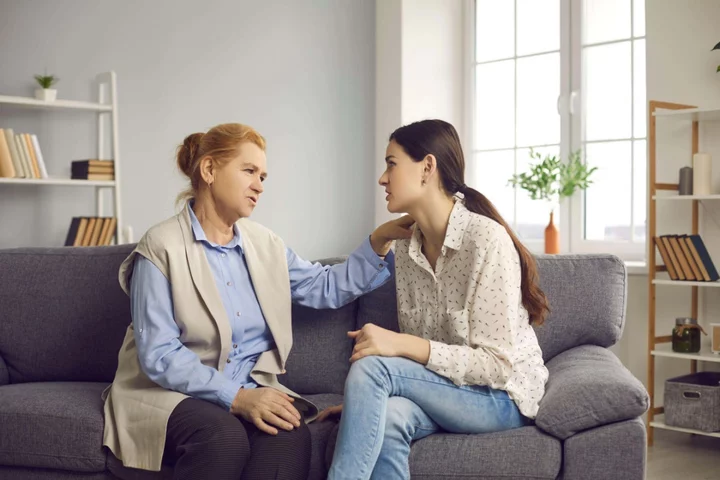
Alzheimer’s: How and when to talk to someone about their memory loss
You may have noticed someone close to you changing – perhaps they are more forgetful, not quite themselves. After a quick search online or a chat with family members or friends, you may be left thinking they’re developing Alzheimer’s. But how do you approach a conversation about dementia when it’s such an emotive topic? “As we get older, we’re all prone to becoming more forgetful, taking longer to remember certain things, getting distracted more easily or struggling to perform several tasks at once,” says head of knowledge at Alzheimer’s Society, Dr Tim Beanland. “These are common signs of getting older, but there is still a very sharp distinction between normal ageing and dementia.” Symptoms that may worry you “Symptoms of dementia gradually get worse over time,” Beanland explains, “and can appear as memory loss, confusion, needing help with everyday tasks, problems with language and understanding, or changes in behaviour. Although symptoms typically occur in people aged 65 and over, they can occasionally appear as early as twenty years sooner.” You may be scared Seeing these types of changes is understandably worrying – it’s a reminder of the age and health of those around us. “Noticing what might be dementia symptoms in a loved one can be distressing and confusing, particularly for people who have never dealt with dementia before,” Beanland says. “Both parties may feel nervous or worried about how to address the topic of potential dementia symptoms, and may not know where to begin.” Be open Beanland suggests asking questions like, ‘How are you feeling lately, physically and emotionally?’ Or ‘Do you have any health worries you’d like to talk about?’ It’s important to remember when approaching someone who may be experiencing dementia symptoms to do so gently, calmly and in a reassuring and supportive manner. “People experiencing dementia symptoms may find it difficult, or take a bit longer, to find the words they wish to say,” notes Beanland. “So, allowing them extra time, or giving them gentle prompts, can help them find the words they’re looking for, without highlighting they’ve forgotten something.” Do your research Dementia or Alzheimer’s may not be the only answer. It’s important to remember there are other conditions which can cause similar symptoms to dementia, such as thyroid problems or urinary tract infections, says Beanland. “Try to focus on helping the person see their GP, to find out what is causing the problems they are having. It’s also important to understand that, whether you are experiencing dementia symptoms personally or you’re a concerned loved one, you do not have to face dementia alone. There is support out there for you. “I’d encourage anyone worried about their own or a loved one’s memory to use Alzheimer’s Society’s symptoms checklist. It will help to unlock the vital care and support you need, and give you the precious time needed with your family to plan for the future.” Read More Charity boss speaks out over ‘traumatic’ encounter with royal aide Ukraine war’s heaviest fight rages in east - follow live As Simon Cowell shares positive therapy experience, how can it help even if you aren’t in crisis? Project launched to bust myth that cancer is a ‘white person’s disease’ 10 slick ways to kit out your student digs
2023-09-01 13:26

Daniel Radcliffe credits his parents for helping him stay in shape
Daniel Radcliffe’s physique became social media fodder thanks to the finale of his TV show Miracle Workers - in which the Harry Potter star tore off his clothes to reveal a toned body underneath. The now-viral scene delighted fans, with many predicting he will be cast as Wolverine in the Marvel Cinematic Universe (MCU) for its forthcoming X-Men reboot. Radcliffe has been open about keeping fit in the past - revealing last year that he credits his parents for driving him to stay in such good shape. “My parents do CrossFit. They’re in their sixties and they’re insanely fit people, so I’ve just got to keep up with [them],” Radcliffe told Entertainment Tonight ahead of the premiere of Weird: The Al Yankovic Story in September 2022. “They’re just setting a crazy bar.” Radcliffe went on to say that he doesn’t actually work out alongside his parents. “We don’t do CrossFit together. CrossFit is their thing,” he said. “I’m not fit enough, probably, for CrossFit. They are phenoms.” CrossFit workouts usually include a wide variety of exercises, including biking, running, swimming, jumping, rowing, deadlifting, and squatting. Sometimes, the intensity of the workout can be tailored to individuals. The franchise was founded in 2001, and it’s marketed as a workout routine that anyone can start, no matter their fitness level. More than five million people around the world practice the workouts, according to CrossFit. Radcliffe also previously thanked his longtime girlfriend Erin Darke for helping him stay in shape. “Since I started dating her, I put on a little more muscle,” he told E! News in 2016. Read More Daniel Radcliffe body transformation leads to unanimous Wolverine prediction from Marvel fans
2023-09-01 04:00
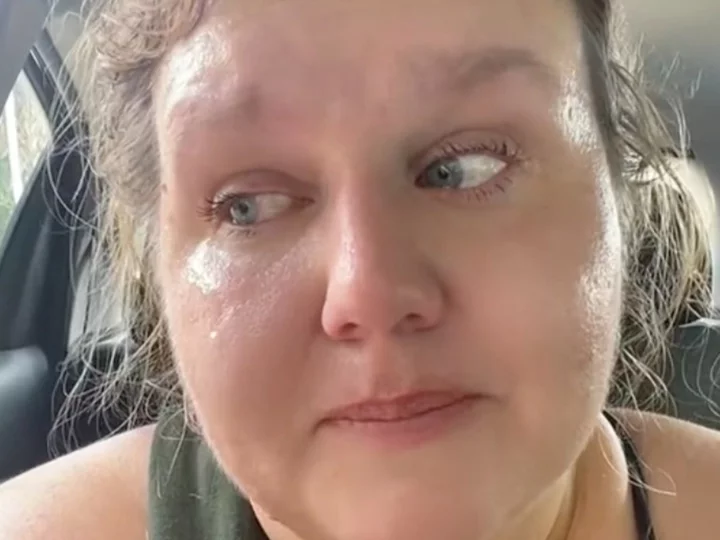
Woman shares heartfelt story of a stranger’s kind words to her at the gym
A woman shared an emotional story about a stranger’s kind words at the gym which brought her to tears. In her TikTok video, a gym-goer named Steph (@callmeindythanks) said that after working out for almost “over two years” she has been “struggling” lately with her progress, especially after an incident a few weeks previously in which two men made some cruel remarks about her weight. She told viewers that one of them “coughed into his hand and said ogre,” which she admitted hurt her feelings. Ever since that interaction, Steph has been grappling with “deep-rooted insecurities” about her weight, which has been impacted by ongoing medical issues. To treat her ailments, she explained that she takes “steroids” which have caused “blood clots” among other problems. As she has tried to deal with her medical issues, Steph said that she was, in turn, “neglecting” herself. When a man with “tattoos all over” approached her as she left the gym, she told viewers that she was bracing herself for what she thought was another bully. As a self-proclaimed overthinker, Steph remarked, “There are a lot of thoughts going through your head being a bigger woman in the gym because there’s all sorts of ages there, different body types, like super fit, not fit, and it kind of messes with your head.” What he ended up saying to her was not at all what she expected. She recounted: “He goes, ‘I’ve seen you in here every week, almost every day. I see you in here every week and I’m proud of you.’” His words of encouragement hit Steph hard, motivating her to make a video about the kindness of this stranger. “You have no idea how much people that are going through something appreciate the kindness,” she said through tears. “He didn’t have to say it, he doesn’t even know what I’m going through.” She continued to say that nobody besides the management at the gym knew about her medical condition. “I’m just grateful for people like you guys that encourage us, people like me. Even if you’re not like bigger but you’re still, like, insecure about something.” “I was having a hard day today but you know what?” Steph told viewers. “That made my day.” @steph5468 #gymprogress #workputjourney #keepgoing #healingjourney ♬ original sound - X There was an outpour of support for Steph and the stranger’s act of kindness online, with one fitness coach commenting on the video: “Just having someone say they are proud of you can move mountains for so many of us.” “To be seen as we are is such a human need in each of us,” someone else remarked. Another wrote, “Little happiness snowballs. We all gotta throw them sometime.” Many have taken to writing encouraging comments on Steph’s personal account where she frequently posts about her ongoing fitness journey. Including comedian Paul Kim, who commented on a recent video of Steph’s, saying: “Crush them with your consistency and progress. You got this!!! We believe in you.” The Independent has contacted Steph for comment. Read More Influencer sparks debate after admitting she asks to see man’s bank account info on first date Fitness influencer Larissa Borges dies aged 33 after double cardiac arrest Schoolboy almost dies from swallowing magnets for TikTok challenge Woman shares honest review of New York City apartment TikTok mom slammed after making 5-year-old son run in 104 degree heat
2023-09-01 03:16
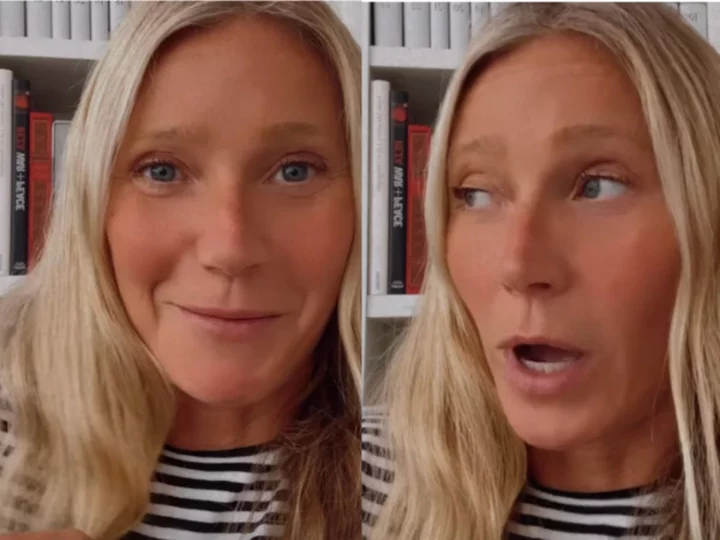
Gwyneth Paltrow says she found being a stepmother ‘really hard’: ‘There’s a lot of landmines’
Gwyneth Paltrow has spoken candidly about her experience as a stepmother to her husband Brad Falchuk’s two children, Isabella, 19, and Brody, 17. On 30 August, the wellness mogul took to her Instagram Story, inviting all of her 8.3m followers to ask her anything. From hair colour inquiries to questions about her late father, Paltrow’s audience didn’t hold back. In fact, one fan forced Paltrow to open up about what it’s been like marrying a spouse who already had two children. “I did find it really hard at first,” the Goop founder admitted. “You know? There’s no book on this. Nobody tells us what to do. And in fact, all of the existing media around what a stepmother is casts us in this evil, villainous light.” “It’s kind of like trying to avoid landmines,” she added. Paltrow married the TV writer in 2018 after four years of dating. She was previously married to Coldplay frontman Chris Martin for 10 years, before announcing their divorce in March 2014. Meanwhile, Falchuk shares his two children with his previous wife of 19 years, Suzanne Bukinik. When the health enthusiast tied the knot with Falchuk, she welcomed Isabella and Brody into her family - with her mini-me daughter Apple, 19, and her 17-year-old son Moses, whom she shares with Martin. The Academy Award-winner acknowledged the difficulties of being thrown into a new family. She pointed out how existing dynamics between each member are tricky to navigate all at once. For her, there was a fear of how becoming a new figure in her stepchildren’s lives would affect everyone. “You’re going into a family with dynamics, and there’s all kinds of fear around loss and what does this new person mean,” Paltrow noted. “But you know for myself, the minute I decided and fully embodied the idea that my step-kids were my kids and I loved them just as much, and I gave them the same rules and boundaries and just kind of wholeheartedly went for it, the easier the whole thing got.” Paltrow’s Instagram confessions come after the A-lister decided to take a social media hiatus earlier this month. In her 2 August post, she was seen sitting below the branches of a tree with the light of the moon peaking in. “Taking this full moon energy with me as I go into a social media break. Going to work on being present,” her caption read. On 14 August, the healthy living advocate broke her social media silence to share a poignant tribute for the renowned artist Clarence Avant. She posted a photograph of them embracing one another, expressing her sorrow over the loss. “You were beloved by so many, including our family who looked forward to every dinner, every drop of wisdom, just the warmth of your presence,” she wrote. Read More Gwyneth Paltrow was asked to film an ad for a probiotic - and the results were chaotic Holly Willoughby channels Gwyneth Paltrow with ‘orgasm anxiety’ blog post Gwyneth Paltrow announces social media hiatus Gwyneth Paltrow was asked to film an ad for a probiotic. The results were chaotic. Marijuana users have higher levels of toxic metals in blood and urine, study finds Rugby star Ugo Monye: Boarding school shaped my career and my personality
2023-09-01 01:53

Marijuana users have higher levels of toxic metals in blood and urine, study finds
People who use marijuana were found to have higher levels of lead and cadmium in their blood and urine, in comparison to those who do not use weed, according to a new study. The team of researchers at Columbia University analysed data from blood and urine samples collected between 2005 and 2018 as part of the National Health and Nutrition Examination Survey, a program conducted by the National Center for Health Statistics. They looked at samples of 7,254 people who said they had used marijuana in the last 30 days. Participants were examined for levels of heavy metals and 358 people were found to have 27 per cent higher blood lead levels than those who said they didn’t use either marijuana or tobacco. There were also 22 per cent higher levels of cadmium in those marijuana users according to the research, which was published Wednesday in the journal Environmental Health Perspectives. Researchers also found that the urine samples showed similar results. High levels of cadmium can cause stomach irritation, abdominal cramps, nausea, vomiting and diarrhoea, according to Better Health. Researchers found that although tobacco is the main source of cadmium exposure in the general population, the study showed similar exposure levels among cannabis users. “For both cadmium and lead, these metals are likely to stay in the body for years, long after exposure ends,” Tiffany Sanchez, an author of the study and an assistant professor of environmental health sciences at Columbia’s Mailman School of Public Health said to NBC News. As cannabis plants can absorb heavy metals from soil - the new findings demonstrate that heavy metals in cannabis plants can also wind up in the human body. “Previous studies have measured metals in marijuana plants, products, or marijuana smoke,” study authors have said. Lead exposure can be particularly harmful to children and pregnant women. In adults, chronic exposure to lead increases the risk of high blood pressure, heart problems and kidney damage. “Our study wasn’t able to tease apart whether or not self-reported cannabis users were using medical or recreational cannabis, so we can’t say definitively if medical cannabis users specifically had higher metal levels,” Sanchez said as reported by CNN. “This is something that should be evaluated in future studies.” Heavy metals bind to parts of your cells that prevent your organs from doing their job, according to the Cleveland Clinic and symptoms of heavy metal poisoning can be life-threatening and can cause irreversible damage. “Immunocompromised people, such as those going through chemotherapy, may be at greater risk from metal exposure or from other common cannabis contaminants like molds. However, this is very much an understudied area,” Sanchez added. On Wednesday, the Department of Health and Human Services recommended that the Drug Enforcement Administration ease restrictions on marijuana by moving it from Schedule I drug to Schedule III. HHS Secretary Xavier Becerra said on X, the platform formerly known as Twitter, that the agency has responded to President Joe Biden’s request “to provide a scheduling recommendation for marijuana to the DEA.” “We’ve worked to ensure that a scientific evaluation be completed and shared expeditiously,” he added. Senate Majority Leader Chuck Schumer said in a statement that HHS had recommended that marijuana be moved from a Schedule I to a Schedule III controlled substance. “HHS has done the right thing,” Schumer said. “DEA should now follow through on this important step to greatly reduce the harm caused by draconian marijuana laws.” Rescheduling the drug would reduce or potentially eliminate criminal penalties for possession. Marijuana is currently classified as a Schedule I drug, alongside heroin and LSD. According to the DEA, Schedule I drugs "have no currently accepted medical use in the United States, a lack of accepted safety for use under medical supervision, and a high potential for abuse." Additional reporting from agencies Read More Biden health agency recommends classifying marijuana as lower-risk, opening potential for major policy changes Seth Rogen reveals why he smokes marijuana ‘all day, every single day’ Rugby star Ugo Monye: Boarding school shaped my career and my personality Queen Latifah calls for more ‘inclusive healthcare’ for people with obesity As Simon Cowell shares positive therapy experience, how can it help even if you aren’t in crisis?
2023-09-01 00:55

Queen Latifah calls for more ‘inclusive healthcare’ for people with obesity
Queen Latifah is calling for more inclusive medical care for people with obesity. In a new interview as part of her work with It’s Bigger Than Me, a US-based campaign by healthcare company Novo Nordisk, the actor and rapper recounted how many people with obesity experience weight discrimination from medical staff. Sharing her personal connection to the issue, the Girls Trip star – whose real name Dana Owens – toldPeople: “I saw my cousin have to deal with this issue – she was morbidly obese and she went in and out of the hospital. “There were so many things she had to face. And for a doctor to just say, ‘Oh, you need to lose some weight.’ Well, it’s not that easy. Everyone’s bodies are not the same. We all deserve specific individual care.” Latifah, 53, backed the campaign’s call for “inclusive obesity care” ensuring everyone can feel “welcome and respected” when they visit the doctors. “Imagine how good it must feel when a patient walks through that door and sees the appropriate chairs or office set-up, that someone has considered them, has taken the time to think about what their needs are,” the Hairspray star said. “There’s a sense of, ‘I’m respected here. I’m welcome here’... If you’re discouraged to get into your doctor’s office, then that’s not a good thing.” When a person is defined as obese, this means that they are overweight “with a lot of body fat”, the NHS says. The World Health Organisation (WHO) explains that the terms “overweight” and “obesity” are used to refer to “abnormal or excessive fat accumulation that presents a risk to health”. It is estimated 64 per cent of adults in the UK are obese or overweight. Last summer, a British study found that obese patients were being “weight-shamed by doctors and nurses”, with weight stigmatisation pushing patients to skip appointments. The stigmatisation leads to patients avoiding appointments, feeling depressed or anxious and being more likely to put on weight, scientists said. The British researchers said there needed to be better education for medics over “weight stigma” to avoid this spilling into healthcare. The scientists looked at more than 3,000 research articles on the topic to identify strategies to tackle negative biases towards overweight and obese patients. In doing so, this could help to tackle the UK’s obesity crisis, as negative biases over weight limit access to healthcare services and treatment. Read More Joe Wicks defends decision to pull five-year-old daughter out of school Woman adopts husband’s ex-wife’s son after growing up in foster care herself Man who went to Turkey to make himself taller says pain was ‘worth it’ As Simon Cowell shares positive therapy experience, how can it help even if you aren’t in crisis? Man who went to Turkey to make himself taller says pain was ‘worth it’ Terminally ill mum prepares for worst after numb hand turns out to be deadly disease
2023-08-31 22:16

As Simon Cowell shares positive therapy experience, how can it help even if you aren’t in crisis?
X Factor boss Simon Cowell, 63, has shared that having discovered therapy in the past year, he feels as though “a weight has lifted off my shoulders”. The music mogul, who is behind The X Factor and Britain’s Got Talent, said he wished he had seen a therapist “10 or 20 years ago” in a recent interview with the Daily Mirror. He also shared that the deaths of his parents and the coronavirus pandemic had affected his mental health. Seeking therapy has been transformative for Cowell and it could do the same for you, whether you are in crisis, or just want to learn more about yourself. Cowell has said engaging in therapy had a “super positive effect” on his life and encouraged others to do the same, so here’s what you should know. There are different types of therapy Contrary to what many people may believe, counselling, where you sit and talk through events and reflect, is not the only form of therapy. “There are a whole host of different types of therapies available, from counselling, cognitive behavioural therapy, mindfulness-based cognitive therapy, acceptance and commitment therapy, interpersonal therapy, psychodynamic psychotherapy to eye movement desensitization and reprocessing,” explains psychologist and author of The Self-Care Revolution, Suzy Reading.Each one can have a different role in helping you get to know yourself better, handling trauma, feeling more grounded and coping more day-to-day. Therapy isn’t just for rock bottom Therapy doesn’t have to be a last resort. “When it comes to therapy, there are no hard and fast rules,” says Liz Ritchie, a St Andrew’s Healthcare psychotherapist. “Many people associate seeking help with crisis, but there is no reason why you cannot maintain regular sessions with your therapist. There is now a wealth of evidence that supports that therapy can also be a preventative form of mental healthcare, a little bit like going to a dentist or a doctor. “Life is busy and stressful, which means we don’t often have time to process cross words with a loved one, work altercations or issues with friends and family members.” You’ll understand yourself better You may think you understand yourself totally, but there are always new parts of ourselves to get to know. “Therapy helps us better understand ourselves, our relationships and the world, connecting us with how we feel, and why we might feel as we do. It is a journey of self-discovery, helping us appreciate our strengths and identify our values,” says Reading. It could give you an emotional toolkitIt can be helpful to have “an impartial sounding board to speak openly and honestly and the opportunity to be heard, validated and understood”, says Reading. “Therapy helps us challenge unhelpful thoughts, dispute self-limiting beliefs and can help us create new habits. Therapy is also about developing healthy ways to move through our emotions, creating a fresh toolkit of coping strategies and can be very practical in nature by helping us address specific challenges or goals.” But… it isn’t easy Unfortunately getting therapy is not always easy. If you do not have the financial freedom to be able to pay for a private therapist, you may be faced with long waiting lists and restrictive services. However, NHS therapy is an option and can be really helpful, so be sure to look into the options you can afford near you. Reading recommends checking out BPS and HCPC to find a qualified therapist. NHS resources can be accessed here. If you are seriously struggling with your mental health, and are at risk, please call 999 or the Samaritans on 116 123.
2023-08-31 20:51
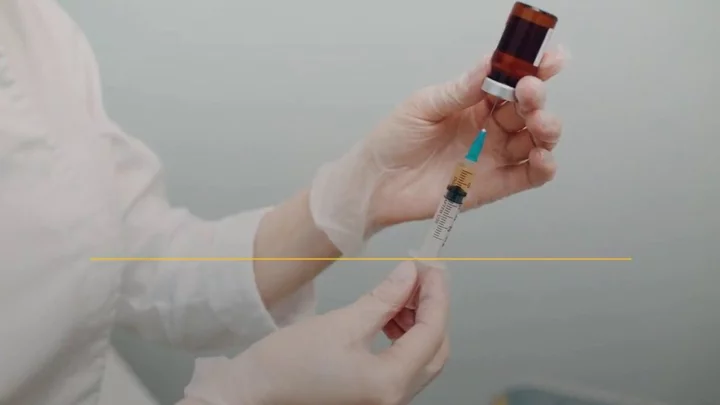
Scientists may have just found a cure for alcoholism
Alcohol addiction ruins millions of lives every year, but scientists may have found a cure for this terrible affliction. A new treatment for alcohol use disorder (AUD) has been trialled in monkeys with impressive results and, if these translate to human trials, the impact could be monumental. A team of neuroscientists and physiologists from across the US tested a new type of gene therapy to see if they could directly target the underlying brain circuitry associated with sustained heavy drinking. As they noted, in the journal Nature Medicine, people suffering from AUD commonly return to alcohol use even if they attempt to quit. This is largely to do with what’s known as mesolimbic dopamine (DA) signalling – meaning how the central nervous system circuit communicates the feelgood neurotransmitter dopamine. A protein called glial-derived neurotrophic factor (GDNF) is key to keeping these neurons in this reward circuitry functioning. However, experts have found that levels of GDNF are reduced in people with AUD during periods of alcohol abstinence, most notably in a region of the brain called the ventral tegmental area (VTA), as IFLScience notes. Therefore, the researchers decided to test whether using gene therapy to deliver more GDNF to the VTA could help reinforce this crucial dopaminergic signalling and prevent patients from suffering an alcoholic relapse. The team of scientists explained how alcohol consumption in non-addicts prompts the release of dopamine, creating a pleasurable buzz feeling, but chronic alcohol use causes the brain to adapt and stop releasing so much dopamine. “So when people are addicted to alcohol, they don’t really feel more pleasure in drinking,” Dr Kathleen Grant, a senior co-author of the study, said in a statement. “It seems that they’re drinking more because they feel a need to maintain an intoxicated state.” For their research, Dr Grant and her colleagues used eight rhesus macaque monkeys, who were exposed to increasing concentrations of alcohol over four 30-day “induction” periods. The monkeys then had free access to alcohol and water for 21 hours a day for six months, during which they developed heavy drinking behaviours. This was then followed by a 12-week abstinence phase, with the GDNF treatment performed four weeks in for half of the subjects. The gene therapy was delivered using a a viral vector containing a copy of the human GDNF gene injected directly into the primate’s VTA, according to IFLScience. And the results were truly jaw-dropping. “Drinking went down to almost zero,” Dr Grant said. “For months on end, these animals would choose to drink water and just avoid drinking alcohol altogether. They decreased their drinking to the point that it was so low we didn’t record a blood-alcohol level.” The most exciting aspect of their findings is the suggestion that gene therapy could offer a permanent solution for people with the most severe cases of AUD. This will be a welcome glimmer of hope to many, given that some 29.5 million people were diagnosed with AUD in the US alone in 2021, according to the National Institute on Alcohol Abuse and Alcoholism. Of these 29.5 million sufferers, almost a million (894,000) were aged between 12 and 17. It’ll likely be some time before we know for sure whether the gene therapy can be rolled out in humans, but it’s an important first step in tackling this devastating disorder. Sign up for our free Indy100 weekly newsletter Have your say in our news democracy. Click the upvote icon at the top of the page to help raise this article through the indy100 rankings.
2023-08-31 19:50
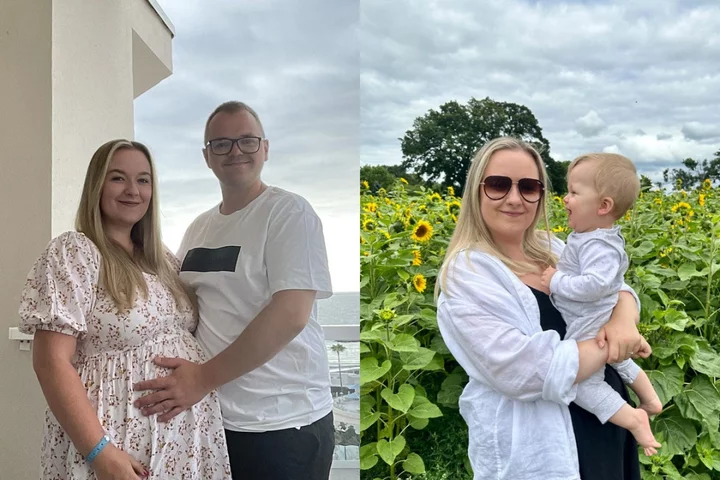
Terminally ill mum wants ‘happy memories’ with family after hand numbness turned out to be deadly disease
A mum who was told she likely suffered from carpal tunnel syndrome after feeling numbness in her right hand during her pregnancy has been given just a few years to live after scans revealed she will soon be paralysed. Charlotte Parker, 28, from West Berkshire, was diagnosed with amyotrophic lateral sclerosis (ALS) nine months after giving birth and is now trying to create “happy memories” with her young family while there is still time. The rare condition, a type of motor neurone disease (MND), means Charlotte only has two to five years’ life expectancy during which time she will become increasingly paralysed. Charlotte, who lives in Thatcham with her fiance George, 32, a mechanic, and their three children, says she wants her 11-month-old son Jimmy to know she was there. Her friends and family are fundraising so she can afford to take her family to Disneyland in Paris and take advantage of what time they have left together. “I don’t think you can imagine having to tell your parents at 28 that you have been diagnosed with a terminal illness,” Charlotte, who works as a revenue and debt accountant at an energy company, told PA Real Life. “At the moment my life is so fast paced that I don’t really have much time to slow down and think about what’s happening. “Most people think MND-ALS affects older people but it actually affects a wide range of people. It can happen to anyone.” Charlotte was seven months’ pregnant when she began feeling a strange “numbness and weakness” in her right hand. “I was struggling to open jars and bottles,” she said. “Gradually it just got worse and worse and by the time I gave birth to Jimmy, I was considerably weaker. “Doing day-to-day tasks while trying to learn how to look after a newborn baby was definitely a challenge.” After flagging the numbness to her midwife, Charlotte was told she likely suffered from carpal tunnel syndrome, a common health condition caused by pressure on a nerve in the wrist. But Charlotte was referred to a neurologist when she went for a routine checkup six weeks after Jimmy was born. “He sent me for an MRI in January for possible inflammation in the brain,” she said. “I think subconsciously at the time that’s when I knew it was something a bit more serious.” While Charlotte was worried, her results came back and suggested there was no problem with her brain or spinal cord. Instead of getting better, however, the numbness started to spread to her other hand. “I kept calling because it started going into my left hand as well,” she said. “I am still able to move my fingers in my left hand but my right hand does not really work anymore.” In June, Charlotte was given an electromyography, a medical test which looks at how a person’s nerves and muscles respond to stimulation. “They put stickers on you and send pulses up your arm,” she said. “I got called in to see the neurologist quite quickly after that, which is when he advised that he strongly believed that it was MND-ALS.” I want to do as many days out with the children as possible so that we have those memories all together. Charlotte Parker ALS, the most common motor neurone disease, is incurable and causes progressive weakness and paralysis, usually leading to death within three to five years, the National Institute of Neurological Disorders and Stroke said. Charlotte’s worst fears were confirmed after she visited John Radcliffe Hospital in Oxford in July and was formally diagnosed. “It’s been a lot to adjust to, especially with a four(-year-old), seven(-year old) and eleven-month-old,” she said. “To know that there is no cure or treatment that will give me a substantial lease of life. “It is just going to deteriorate pretty quickly.” Charlotte broke the devastating news to her family and friends that her illness is terminal. “My youngest is completely none the wiser and the girls are aware that my hands are getting weaker and that it will move to my legs, but we haven’t gone into the detail of what it means will happen.” Unfortunately, doctors are unable to say how quickly Charlotte’s condition is progressing. “Each person’s story is different,” she said. “It’s such a maze on how one person’s body deteriorates to the next.” But Charlotte is not letting the diagnosis get in the way of her family plans. The mum, who does not have life insurance, plans on continuing to work for “as long as possible”. “I am fortunate that my work provides death in service,” she said. “If I can, I will try and work for as long as possible so that my partner and children do have something to help them for the next however many years.” She also plans on marrying the “love of her life”, George, after getting engaged two years ago and falling pregnant. “I fell pregnant and it just got pushed to the side. I didn’t want to get married nine months’ pregnant,” she said. “It’s time for us to celebrate us as a couple rather than just accepting that we’re not going to be together for the rest of our lives. “We have to make good of what we can and celebrate what we do have, right now, rather than just accepting the situation.” The couple, who recently went on holiday to Pembrokeshire, are also looking to create “happy memories” while there is still time. “We were on the beach late evening, when it was raining and full of wind, and we were taking photos running in and out of the sea to make memories,” she said. “I want to do as many days out with the children as possible so that we have those memories all together. “Even silly things, like being there for Jimmy’s first haircut and taking him to feed the ducks so that we can capture those memories and that he knows that I was there.” Charlotte’s friends have set up a fundraiser on GoFundMe to help them cover their costs, including a trip to Disneyland, Paris. “It would be a great trip to have with them,” she said. “I just want to enjoy my family and do as much as I can with them because there will come a point where even though I’m around, it will be a lot more complicated.” They have so far raised £11,235 of their £15,000 target. Charlotte continued: “A huge thank you to anyone who can help and it will go to creating some of the best memories I can with my family before the inevitable does happen.” To support Charlotte, visit: www.gofundme.com/f/complete-her-wishes-with-her-family Read More Woman’s blood cancer misdiagnosed as carpal tunnel due to burning hand pain What happens to your brain when you’re pregnant? Cyclist completes 960-mile ride to remember friends who died from MND What is sickle cell disease and how do you know if you have it? Project launched to bust myth that cancer is a ‘white person’s disease’ Man who lengthened his limbs by three inches says he feels ‘so much happier’
2023-08-31 17:53
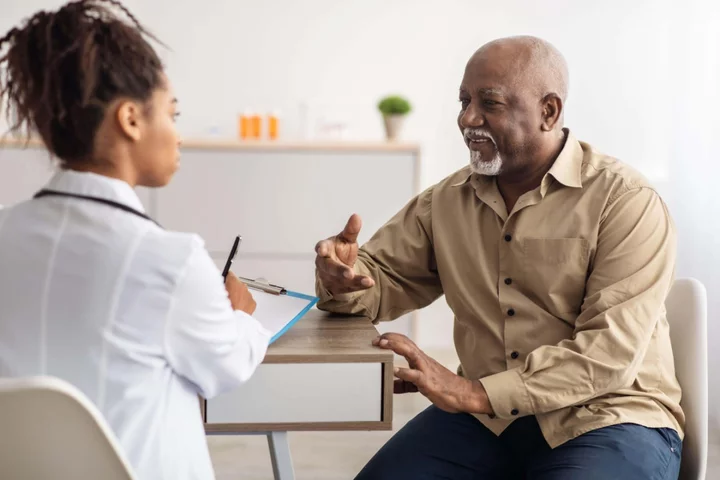
Project launched to bust myth that cancer is a ‘white person’s disease’
More must be done to get black, Asian and ethnic minority people to participate in breast cancer trials, experts have said, as they warned that people from these backgrounds have been under-represented in previous studies. Medics said that they want research into the disease to be “relevant to people we see in the clinic”. Experts said that there is a “broad misperception” that black women “don’t suffer as much from breast cancer” which can result in the perception that “cancer is a white person’s disease”. If I hadn’t gone on the trial at The Christie, I wouldn’t be here today Jasmin David This is despite the fact that previous studies have found that black women are more likely to die from breast cancer compared to their white peers. They are also more likely to develop more aggressive cancer and be diagnosed when their cancer is at a more advanced stage. It comes as the NHS Race and Health Observatory launched a new campaign alongside Macmillan Cancer Support to improve diversity in breast cancer clinical trials. The project, which is being supported by Roche, aims to raise awareness of the lack of diversity in clinical studies, improve communications and provide longer term support to patients. Specialist nurses will be provided at two major cancer hubs – Bart’s Health NHS Trust in London and The Christie NHS Foundation Trust in Manchester – to help guide patients through the process. Men, who account for 1% of breast cancer patients in the UK, are also being included. The NHS Race and Health Observatory said that there are “multiple barriers” around the recruitment, communication and retention of black, Asian and ethnic minority patients in clinical trials. It said that data show that people from an ethnic minority background are poorly under-represented in many clinical trials. And the Caribbean African Health Network said that there has been a “disengagement” in research “as a result of mistrust”. Jasmin David, a 53-year-old breast cancer patient from Fallowfield in south Manchester, took part in a clinical trial which saved her life and is encouraging others to do the same. Two years after her initial diagnosis and treatment at The Christie she was told that the cancer had come back and had spread to her lungs, lymph nodes and chest bone. The mother-of-two was told she had less than a year to live but was also offered the opportunity to take part in a clinical trial at the National Institute for Health and Care Research Manchester Clinical Research Facility. Ms David is now cancer-free. “If I hadn’t gone on the trial at The Christie, I wouldn’t be here today,” she said. “I have two children and now I get to be there for them as they grow up. “Research gave me a second chance and life and I’m relishing every second of it. “I want everyone, no matter their ethnicity, to have equal access to clinical trials, so I’m glad that this important piece of work is being done. I hope that by sharing my story I can inspire more women like me to come forward and take part in clinical trials.” Dr Habib Naqvi, chief executive of the NHS Race and Health Observatory, said: “We are pleased to announce this partnership and our joint commitment to ensuring inclusion and representation in future breast cancer trials. “We believe that when targeted, culturally sensitive interventions and communications are put in place, under-represented groups can be successfully recruited into clinical trials.” He added: “There is a broad misperception that black women don’t suffer as much from breast cancer or it does not run in their family history. This can result in the perception that cancer is a white person’s disease. “We want this pilot to encourage women at risk, those already diagnosed and individuals undergoing post treatment to come forward and share their experiences and get the information needed.” Professor Richard Simcock, chief medical officer at Macmillan Cancer Support, added: “As a Breast Cancer Oncologist I want to know that research is relevant to the people we see in clinic. Historically that has not been the case. “I’m delighted that Macmillan can support this project to ensure that future evidence from clinical trials is representative and inclusive.” Charles Kwaku-Odoi, chief executive of the Caribbean African Health Network, said: “Across the black community there is an undoubted legacy of disengagement in research and most certainly clinical trials that stems back decades as a result of mistrust. “This has not served us well because it leads to a lack of appropriate interventions that perpetuate the grave health inequalities in breast cancer care. “This partnership approach to build solutions to improve engagement in clinical trials in breast cancer treatment and care is very much welcomed. We are looking forward to working in a collaborative way to build trust, improve awareness and ensure that barriers surrounding access to clinical trials are addressed.” Read More Charity boss speaks out over ‘traumatic’ encounter with royal aide Ukraine war’s heaviest fight rages in east - follow live 10 slick ways to kit out your student digs 4 essential officecore trends to update your work wardrobe Sickle Cell Awareness Month: What is sickle cell disease and how do you know if you have it?
2023-08-31 17:25
